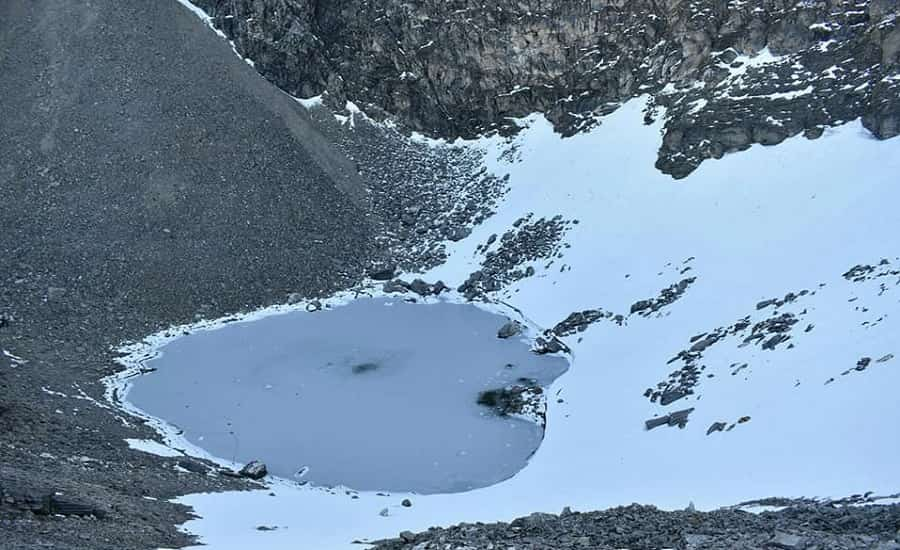Uttarakhand
Roopkund Lake: In Peril Due to Climate Change
- 15 Oct 2024
- 2 min read
Why in News?
Recently, the famous Roopkund Lake in Uttarakhand, known for its centuries-old human skeletons, is shrinking as climate change affects its size and ecosystem.
Key Points
- Roopkund Lake:
- The skeletons found in Roopkund are believed to date back to the 9th century.
- Genetic studies indicate that these individuals came from diverse groups, including a Mediterranean lineage.
- Theories suggest they were either pilgrims or traders who perished during a sudden hailstorm, with massive hailstones being the possible cause of death.
- Scientific Studies on Roopkund's Skeletons:
- Modern research has uncovered DNA traces from multiple ethnicities, some as recent as the 19th century, suggesting Roopkund may have been visited over a prolonged period.
- Researchers believe that Roopkund was once a sacred site, and the pilgrims likely traveled long distances before meeting their demise in this isolated, high-altitude lake.
- Environmental Impact of Climate Change:
- The decline in glacier size, altered monsoon patterns, and erratic snowfall have caused a reduction in water levels at Roopkund.
- Changes in temperature and weather are affecting the region’s flora and fauna, contributing to the ecological imbalance around the lake.
- Tourism and Conservation Challenges:
- Roopkund's reduced size and environmental degradation are making it harder to preserve the lake's unique history and ecological significance.
- There are growing concerns that unchecked tourism and insufficient conservation efforts may exacerbate the damage caused by climate change.





